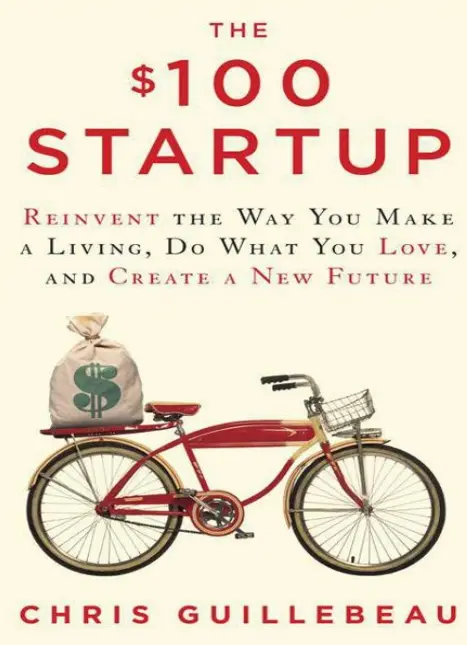
The $100 Startup proves that you don’t need millions of dollars or a perfect idea to launch a business. Chris Guillebeau shares inspiring stories of entrepreneurs who started with little and built profitable, meaningful companies. This book teaches you how to go from idea to income quickly, using minimal resources, real-world testing, and a focus on solving problems people actually care about.
The $100 Startup is a practical, inspiring guide for anyone who wants to start a business with little or no money , do work they love, and build a life on their own terms.
Written by Chris Guillebeau , a writer, traveler, and entrepreneur known for his work on unconventional living and global exploration, this book challenges the traditional idea that you need massive funding, a perfect plan, or years of experience to start a successful business.
Instead, Guillebeau presents a new model of entrepreneurship based on:
He backs up his ideas with real-life case studies of over 50 entrepreneurs who started businesses with just $100 or less —and turned them into profitable, sustainable ventures.
At the heart of the book is a simple but powerful message:
“You don’t need permission, capital, or a business degree to create something valuable.”
Guillebeau encourages readers to move from dreaming to doing. He argues that many people get stuck waiting for the “perfect” idea or enough money to begin. But in reality, starting small allows you to learn fast, fail cheaply, and iterate quickly .
Key Insight: Great businesses grow from tiny actions—not grand plans.
Traditional entrepreneurship often involves:
But Guillebeau proposes a different approach:
Use your current skills, knowledge, and interests to create value right away.
A small-scale business that doesn’t require big investment but can generate meaningful income.
Launch a minimum viable product (MVP), get feedback, and improve based on real data—not guesswork.
Great businesses begin by helping one person very well—and then expand from there.
Important Lesson: Don’t wait until you’re ready—start now, with what you’ve got.
One of the most compelling parts of the book is the collection of real-world success stories . These aren’t tech unicorns or Silicon Valley startups—they are everyday people who used creativity, hustle, and focus to build profitable businesses.
Some standout examples include:
Started offering social media help to local businesses using free tools and her existing knowledge. Now earns full-time income without needing an office or staff.
Used Cafepress to sell custom t-shirts online. She grew it into a steady side business while working another job.
Launched a blog about WordPress troubleshooting and offered support services. Built a profitable business in under 90 days with minimal cost.
These stories prove that you don’t need a groundbreaking idea —just a good idea executed well.
Key Insight: Most successful businesses don’t start with genius ideas—they start with action.
Although written before Eric Ries’ The Lean Startup , The $100 Startup shares many similar principles:
Guillebeau emphasizes the importance of getting out of your head and into the market as soon as possible. Whether it’s selling digital products, offering consulting, or starting a service-based business—you can begin today.
Important Lesson: Action beats planning (when done right).
Here are some of the most important lessons Guillebeau shares for aspiring entrepreneurs:
Your first version will be flawed. That’s okay. Get feedback early.
Even if your product isn’t fully polished, charge customers from the beginning. This helps validate demand and creates accountability.
Try things, measure results, and adjust accordingly. Your business is an experiment.
Use tools like Facebook, Instagram, Canva, Gumroad, Substack, or Shopify to reach customers without spending much money.
No matter how good your product is, you still need to tell people about it. Learn how to communicate value clearly.
Key Insight: Marketing is not evil—it’s essential for helping the right people find your solution.
Guillebeau shows multiple ways to monetize a small business:
Many of these models can be built with no inventory, no employees, and low overhead .
Important Lesson: The goal is not to build the biggest company—but the best business for you .
While passion is a great motivator, Guillebeau warns that passion alone won’t pay the bills . To build a real business, you must also solve a real problem for real people.
He introduces the concept of the “Venn Diagram of Success” :
The sweet spot is where all three overlap.
Key Insight: Find the intersection between passion, skill, and market demand.
The $100 Startup is more than a business book—it’s a manifesto for living a life of freedom, purpose, and financial independence.
It shows that:
As Guillebeau writes:
“If you want to build a business that supports the life you want, you can do it—regardless of your background or budget.”